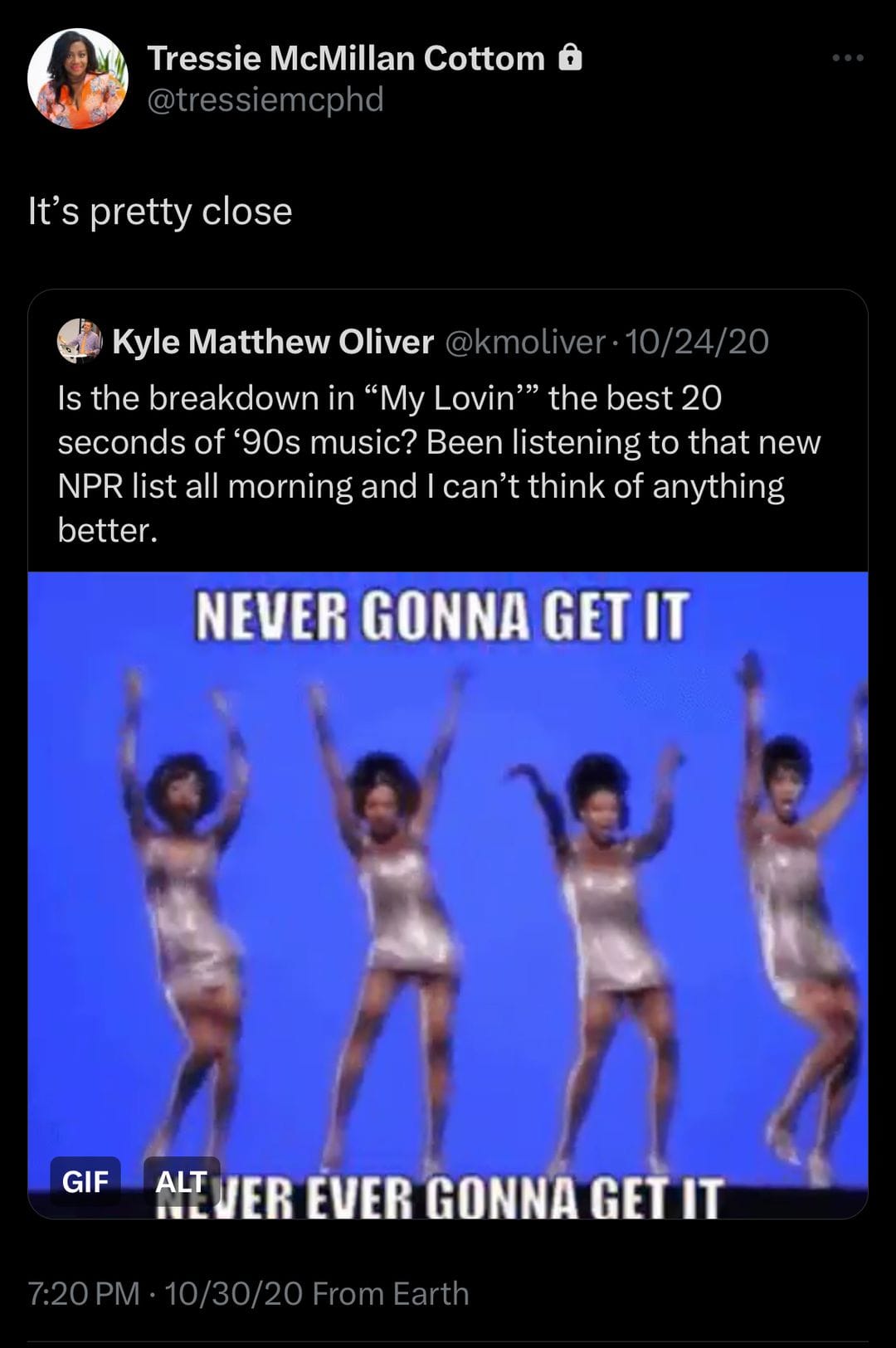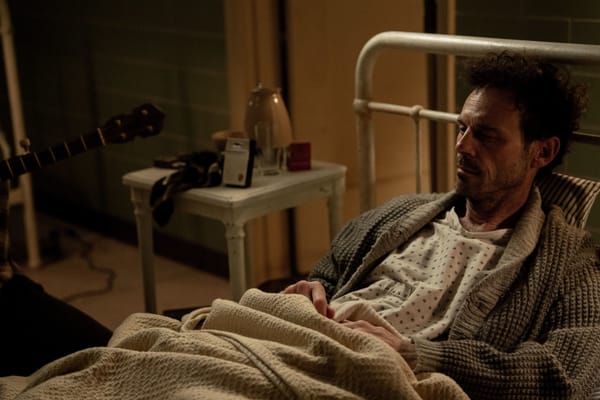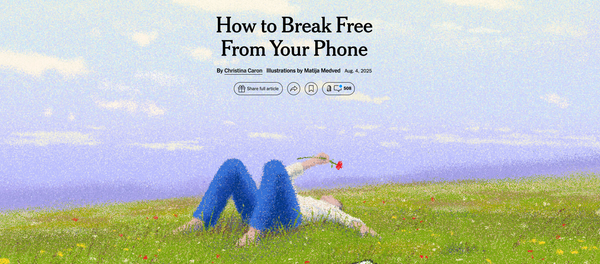Dearly Departed Twitter

Allow me to pour one out for Twitter. (But the issues are about more than Twitter.)
What do I miss about this platform? PLAY! Hashtag games. One liners. Memes. Ease of sharing and commenting on all the above.
Also CONVERSATION. Especially at live events. Maybe it's true that character limits encouraged a kind of shallow shouting. But Twitter (more than any other platform, at least for me), was about interaction with people I wouldn't otherwise interact with (or couldn't because, you know, a keynoter was currently talking or whatever).
But yes, there was plenty that was bad, and it has gone from bad to worse to horrifying under Musk. I don't use it anymore except to do things like grab this screenshot.
My media shout-out today is to an interview with one of my favorite living authors, Robin Sloan, on the occasion of the unraveling of Twitter. He makes a couple points that feel important and also nod a little bit to what I want to cover next week.
- Timelines are not the only way to organize information. It's telling, and not surprising, that one of Sloan's laments is that we got so locked into timelines for so long. Of course, TikTok isn't primarily timeline-based, and neither are Stories. But I share Sloan's curiosity about what other future technologies might be social, focus on user-driven content, and might organize that content in very different ways from "vertical scrolling timeline of posts."
- Twitter may have been less of a barometer than many (including me) gave it credit for. Of course, he's an author trying to get people to buy novels, so what he wants to measure is pretty deep and ethereal. Still, I like the section of the conversation where they talk about how even Twitter-based feedback that felt really important didn't have much to say about the kind of impact novelists are trying to have on readers. (This part was interesting, but I also have some pushback. Sure, that might be true of something basic like retweets. But when "posting" turns to "having a conversation," I sure think you start to get meaningful feedback a lot of the time.)
- It's healthy that we have a lifecycle through which these apps come and go. Maybe the time when we developed the "playbook" for using social media for various kinds of social good (sort of the public utility model) is going to have been the exception, not the rule, in terms of reliability of the status quo. (Of course, it wasn't THAT reliable anyway, but I appreciate his point that we kind of got "locked in" for about a decade.)
Anyway, the fact that Twitter was, for so many of us, the place where we came to play (with words, with images, with concepts, and especially with each other) is going to be significant in whatever it is I'm working on with these posts:
OK, tomorrow I promise I will share my advice, for whatever it's worth, about how faith leaders, nonprofit leaders, etc. might think about their future investments of time and energy in light of the kinds of changes we've been tracking this week.



